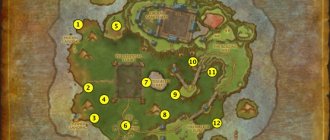Nutrition plays a big role in any type of physical activity. You need to know what energy the body needs and what it is better to avoid. This is also important for running, which is the most popular sport. How long after eating can you run, and how long should pass between eating and starting to run? What can you eat and what foods should you avoid? Let's try to understand these issues.
Why can't it be done immediately after eating?
First of all, you need to determine what harm running can cause to the body immediately after eating. First of all, running after eating will be quite difficult, since a person consumes on average about 1-1.5 kg of food, which can be equated to an additional load in the form of lifting a dumbbell.
In addition, running after eating will lead to a lack of blood , which is necessary both to supply the muscles during physical activity and to digest the food taken. When running, the body begins to spend additional resources on sufficient blood supply. As a result, you get tired quickly, and pain may appear in certain parts of the body.
The length of time it is advisable to wait after a meal depends on several factors, including the following:
- The amount of food that was consumed.
- Type of food taken.
- The presence of any discomfort in the digestive tract.
- Individual characteristics of the body.
Each person must independently determine the optimal period of time that he needs to start training after eating. On average, this time is 1-3 hours.
The benefits of running in the morning
In principle, you can run at any time convenient for you; in any case, jogging will bring you benefits. However, running in the morning has additional benefits over running at other times. Let's take a closer look at them.
- Regular morning jogging will solve the problem of getting up in the morning. The body will get used to the fact that immediately after waking up it will have physical activity. Thus, over time, you will easily and quickly wake up, being alert and ready for this load.
- Running in the morning will solve the problem of lack of appetite. Many people don’t feel like eating in the morning and this is bad, because the body has been starving all night and in the morning it needs to replenish its energy reserves. After a morning jog, the lack of appetite disappears and a feeling of hunger appears, which will help you easily eat a full breakfast.
- Morning jogging enhances the fat burning process. Since the body consumes carbohydrates as energy, fat burning will not begin until the supply of carbohydrates is depleted. At any other time, the body “stays” on carbohydrates for about 20 minutes, and only then begins to use and burn its fat reserves as energy. In the morning, after sleep, the supply of carbohydrates is already depleted, and therefore the body literally immediately turns to fats.
- Running in the morning promotes excellent sleep. After physical activity, the body needs a lot of time to relax. Therefore, by running in the evenings, we significantly reduce this time, which for some can cause poor sleep and a long time to fall asleep. But, again, everyone’s body is different, some need more time to relax, some less, so for some running in the evenings will be quite normal, but for others it will be the cause of poor sleep.
- Running in the morning improves self-esteem. Getting up earlier than others, doing what others can't, looking better than others, being healthier than others - all this will give you a feeling of superiority over many people and will positively affect your self-esteem. And good self-esteem, as you know, is one of the key factors for achieving success in life.
How long before a run should you eat?
You should not go for a run hungry, but also not on a full stomach. Exercising without first eating can lead to feeling unwell, dizzy, or even losing consciousness. In addition, this will have a bad effect on your running results.
Running with a full stomach is also unacceptable , as it can lead to poor digestion, decreased endurance, and heaviness in the stomach. The optimal solution in this case is a light snack half an hour or a full meal a couple of hours before training.
In fact, the indicated time for eating before a run is considered an average, with the food that was consumed playing an important role. It will take much longer to digest fatty foods than light foods.
But even
in this case, it is necessary to take into account the individual tolerance of the body to one or another type of food .
For example, an individual organism may spend much more time digesting protein than digesting carbohydrates, or vice versa.
You can consider the optimal time between eating and jogging in the case of consuming one or another type of food:
- If a person has eaten a banana, apple or honey, that is, fast carbohydrates, then jogging can begin 20 minutes after taking them.
- If the diet included baked goods or porridge, that is, slow carbohydrates, you will be able to run in 1-1.5 hours.
- When consuming protein foods, which include meat and dairy products, the time before jogging should be increased or even postponed for a while. The optimal time for jogging after eating protein is 2-3 hours.
- Fatty foods, which include canned food, lard, and fatty sour cream, are considered the most difficult to digest, so you can run at least 3 hours after eating it.
Forbidden food for runners
Pay attention to the list of foods that are extremely undesirable for runners:
- alcohol;
- deep-fried foods;
- fatty desserts;
- sauces and gravies;
- semi-finished products and fast food;
- soda;
- salty quick “snacks” like chips.
Be sure to remember that the distribution of nutrition during running training is not only the key to a successful workout, but also maximum benefit for the body. Remember that training with poor nutrition can harm your body.
Train correctly and go to the start line with the Almaty Marathon!
Similar articles:
How to properly recover after a marathon
On March 17, about a thousand athletes and lovers of a healthy lifestyle ran along Al-Farah Avenue...
Nutrition: let's follow the main rules...
We eat food several times a day, and so on throughout our lives. Imagine two people who...
Happy running family – a chance to get closer to each other
Recently, the first stage of the Happy running family project, organized by the famous Almaty…
Everything you need to know about food allergies
Food allergies We all love to eat. Winter holidays are a special occasion to do this…
Almaty Marathon about starts, victories and new goals
2020 is coming to an end. This was very beneficial for the World Class Almaty fitness club team...
How to eat right before a marathon
Approximately 3/4 of marathon participants are familiar with the “wall” phenomenon: speed is lost, and athletes are forced...
What is advisable to eat?
During physical activity, including running, you need to follow a certain schedule of exercise and food intake . This regime is individual for each person, since everything depends on the work schedule, physiological characteristics and other factors. Depending on the time of day when you jog, you need to select the type of food.
In the morning
Morning jogging often becomes difficult for most people who are busy preparing to go to work. If you don’t have time for a morning run or eat before it, you can have breakfast after running 0.5-1 hour later.
In this case, you can eat an egg, a piece of whole grain bread and juice.
You can drink an energy drink before your run.
If there is enough time for eating and jogging, then it is recommended to consume carbohydrates in combination with a small amount of protein food at least an hour before running.
For breakfast before a run you can eat:
- A glass of low-fat yogurt, toast and an apple.
- A couple of fruits to choose from and porridge with low-fat milk.
- Tomatoes, cucumbers, croutons with low fat cheese.
During the day
Daytime jogging is not as popular as morning or evening jogging, but there are people who dedicate their lunch break to running. In this case, it is recommended to divide the lunch meal into 2 parts - before and after the run, while the calorie content of the food depends on how hearty the breakfast was.
An hour before your run, you can eat toast with jam, oatmeal or a chocolate bar . The meal after a run should be more substantial, containing carbohydrates, but you need to wait at least an hour for it. You can eat nuts, yogurt, fresh and dried fruits, and a small portion of hot food.
In the evening
Evening jogging is very beneficial for the body, as it helps relieve daytime stress and prepare for bed. But despite being tired and hungry after a hard day’s work, you shouldn’t eat everything to fuel yourself before a workout. To do this, you need to eat right throughout the day, eating food often, but in small portions.
Before your evening run, you can eat fruit or an energy bar, as well as dairy and protein products. You also need to remember that a late dinner will not bring any benefit, so the time for eating an evening meal and jogging must be distributed correctly.
ATTENTION . The optimal time for an evening jog is an hour after eating. In order not to deplete your body, you can consume cereal bars every hour during training.
What happens to the body during training?
During training, deformation and destruction of muscle fibers begins in our body. Damaged muscle cells release the enzyme creatine kinase (CK) into the blood. The level of this enzyme in your blood indicates how much your muscles and overall skeleton were used during exercise. If the level of SC in the blood is high, then you need to pay attention to your diet after training.
A necessary nutrient after a run is a large amount of carbohydrates. Heavy exercise causes your body's glycogen stores to begin to be used up. This, in turn, means that your body will not have enough energy for the process of muscle recovery and growth.
Therefore, the post-workout meal should contain a large amount of carbohydrates so that the body is provided with the necessary amount of energy and the muscles have time to recover and grow. Without this carbohydrate fuel, your body will pull protein and fat from your muscles. This means that it will now take longer for the body to recover. The ratio of carbohydrates to protein in your post-workout diet should be 3:1 or 4:1.
To repair damaged muscles, your body also needs protein, which is made up of amino acids - the building blocks of your muscles. Therefore, it is especially important after training such as running, during which you carry quite an impressive weight on your legs for a long time - yourself.
Many athletes try to avoid fat, but in fact, not having enough fat can hinder your ability to improve your athletic performance. If your workout lasts longer than an hour, your glucose stores are low and your body begins to burn fat to provide the energy it needs. It is very important to pay attention to what type of fat is contained in your products. While saturated and trans fats can be harmful to you, the fatty acids found in certain types of fish (mostly sea fish), for example, play a very important role in helping muscle recovery and oxygen regulation, the production of your body’s “restoration” hormones and immune function. systems as a whole.
In addition to food, adequate hydration of the body is also very important, since during training you lose a lot of fluid, and with it important minerals and vitamins. Therefore, many athletes and trainers recommend drinking water in small portions during training. If the workout lasts longer than an hour, your body will need not just water, but water rich in minerals, sodium is especially important.
You can buy special sports drinks for this, which contain all the necessary microelements, or simply release the gas from mineral water and drink it during training. Another one is a mixture of water and concentrated orange juice (100 ml of juice per 1 liter of water) or just slightly salted water.
Is it allowed to train on an empty stomach?
Running on an empty stomach is possible, but taking into account the individual characteristics of each person and the physical fitness of his body.
For example, for people prone to obesity, running before meals is even beneficial , since their body gets used to such stress and speeds up the metabolic process, automatically burning fat.
For such people, jogging on an empty stomach helps remove toxins from the body and improve the functioning of the cardiovascular system. But this applies mainly to morning runs, which should be of moderate intensity and last no more than 1 hour.
However, running on an empty stomach is not recommended for people with gastrointestinal problems , stomach ulcers and other health problems. In this case, it is recommended to refresh yourself with at least a fruit drink and only then go for a run.
Video. Nutrition Basics Before and After Running
About the most important things: Nutrition and regimen for the heart, hypertension and hypotension, running or walking
Athlete's Breakfast - Nutrition for a triathlete/runner/cyclist/swimmer
What to eat in the morning? The ideal athlete's breakfast!
- >
About the most important things: Nutrition and regimen for the heart, hypertension and hypotension, running or walking
Nutrition tips for breakfast, lunch and dinner from the chief cardiac surgeon of the Russian Ministry of Health. Three commandments of a healthy heart from academician Leo Antonovich Bockeria.
- >
Athlete's Breakfast - Nutrition for a triathlete/runner/cyclist/swimmer
Breakfast is a person's first meal of the day. Breakfast should take into account that you have been sleeping and recovering all night, and food has not arrived for a long time. Therefore, the most important thing is that breakfast has enough calories. Don't forget about the benefits of fiber, and the best time to take it is in the morning. My choice is PORridge! After such a breakfast, any athlete can start the day with a good workout!
- >
What foods are desirable and what should you avoid?
Meals before training, including before jogging, should consist primarily of carbohydrates with a low content of coarse fiber. Otherwise, food may cause colic, bloating, nausea and other unpleasant sensations. Fat and protein intake before a run should also be kept to a minimum.
To replenish energy before a run, the best foods to consume are honey, berry jelly, bananas, dried fruits, buckwheat or oatmeal, freshly squeezed fruit juices and cocoa.
Several breakfast options
The following recipes will make your breakfast and jogging results ideal:
Oatmeal with honey bananas
It is optimal to give preference to unprocessed oatmeal , the appearance of which resembles flattened grain, and the cooking time is 10 minutes.
Porridge can be diluted with bananas:
- the fruit is cut into slices and placed in a frying pan with the addition of a small amount of brown sugar and cinnamon;
- oatmeal can be prepared with water or milk;
- After preparing the porridge, bananas are laid out on it, after which the dish is poured with honey.
Whole grain pancakes
To prepare them you will need:
- mix a glass of fruit juice with a couple of eggs, a glass of flour and half a packet of baking powder and vanilla;
- small pancakes are formed from the resulting mixture;
- The finished pancakes are topped with honey or syrup.
It is important
In any case, you should not starve yourself to achieve faster results, as this may have the opposite effect. Moderation is important in everything, and only with proper nutrition can you get the maximum benefit out of running.











